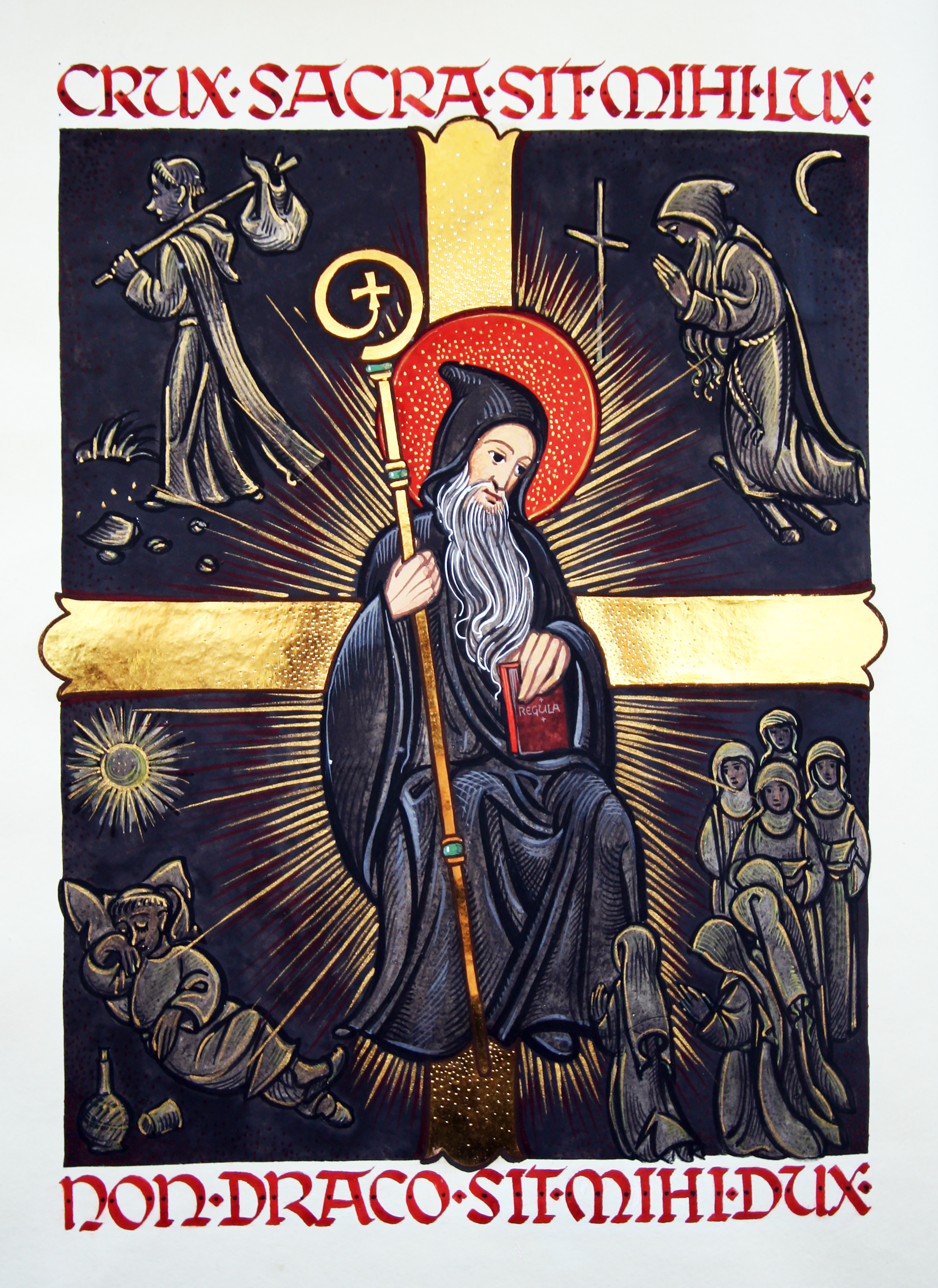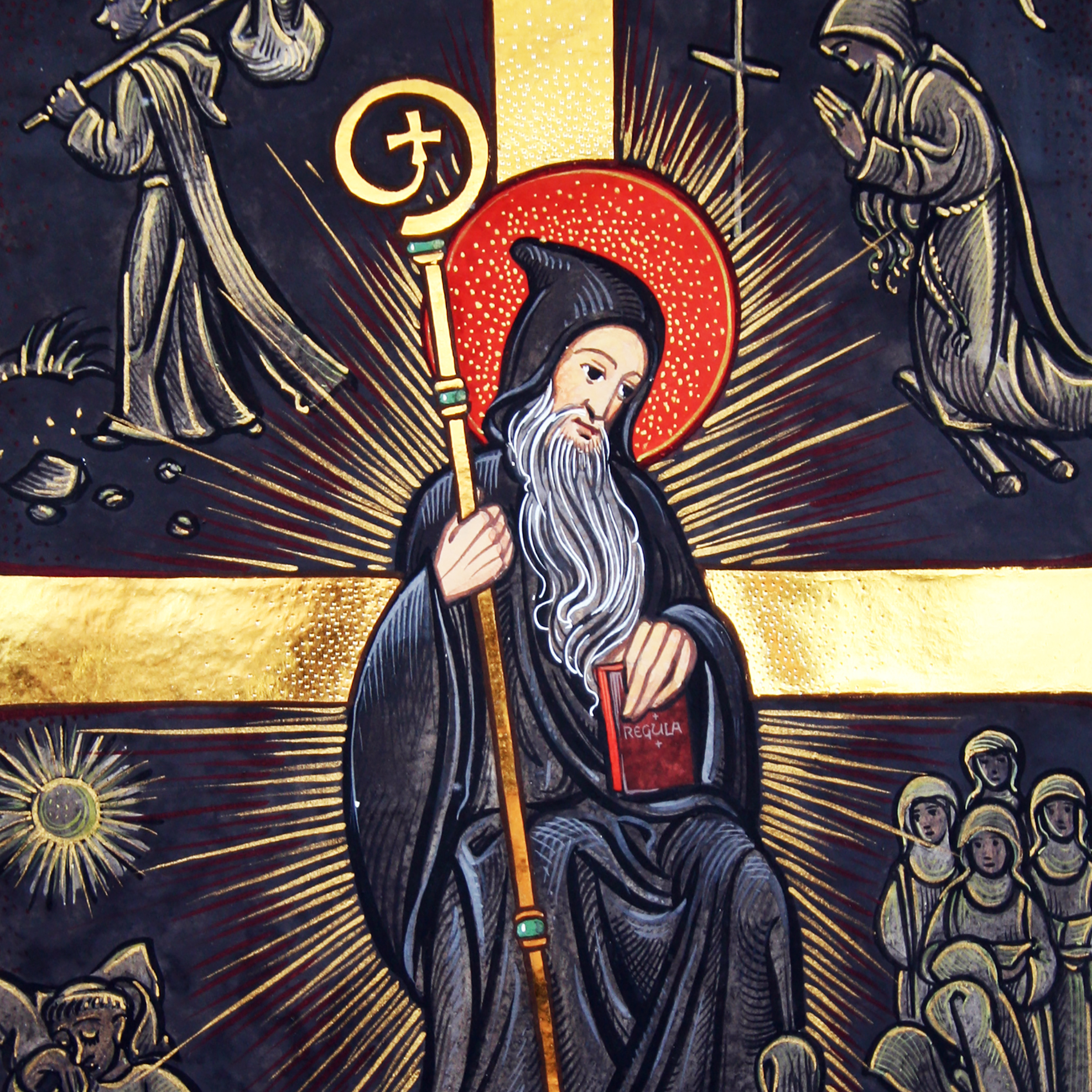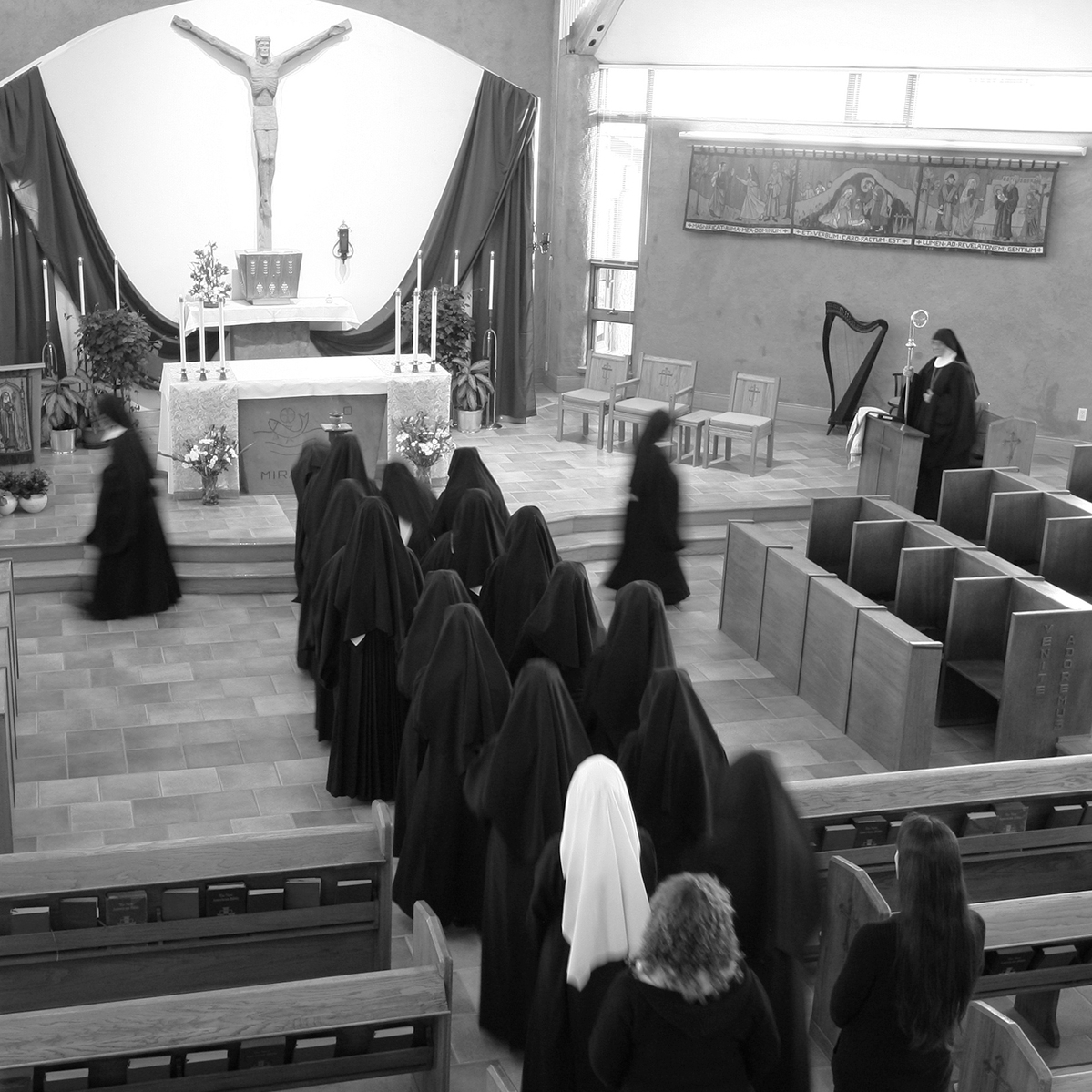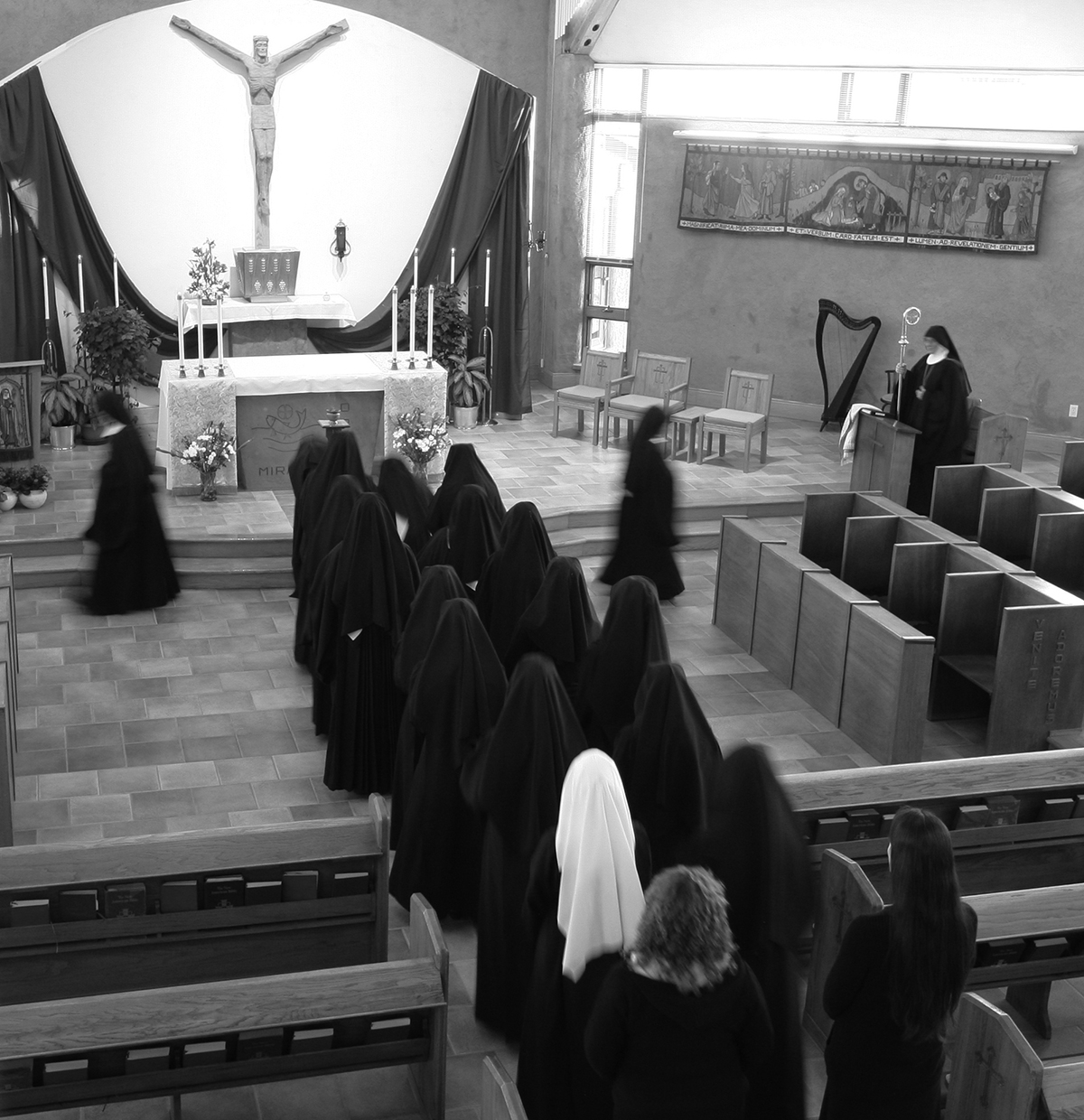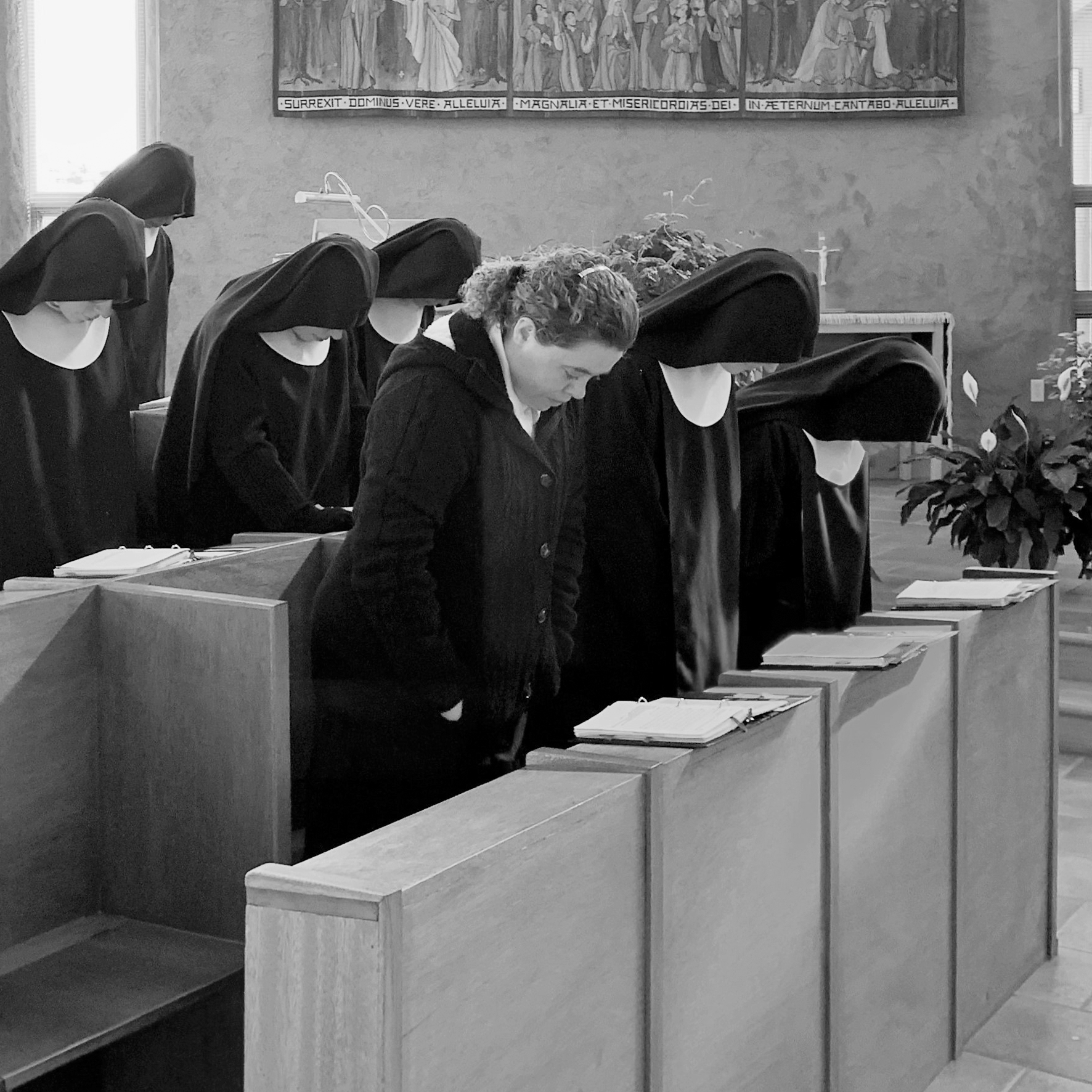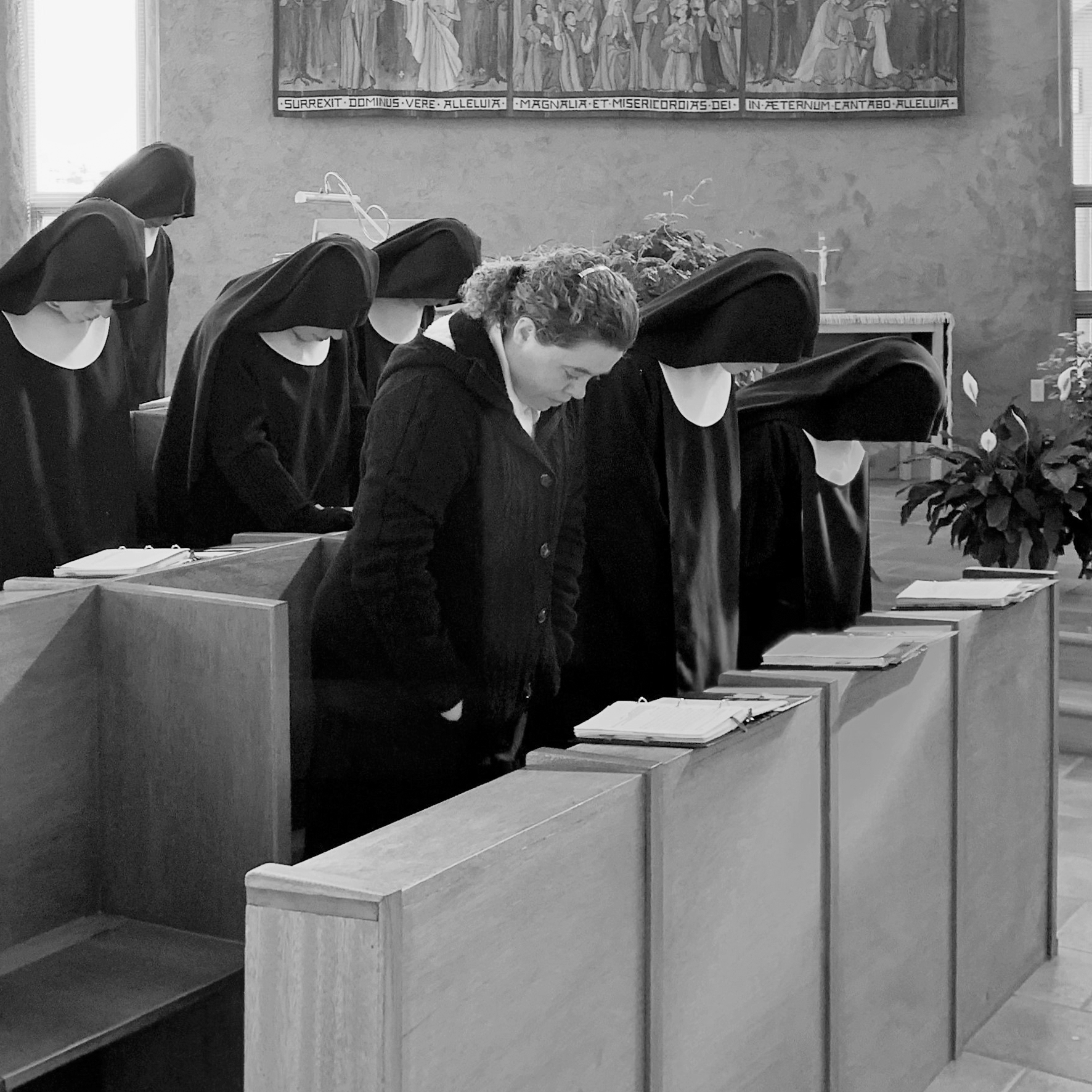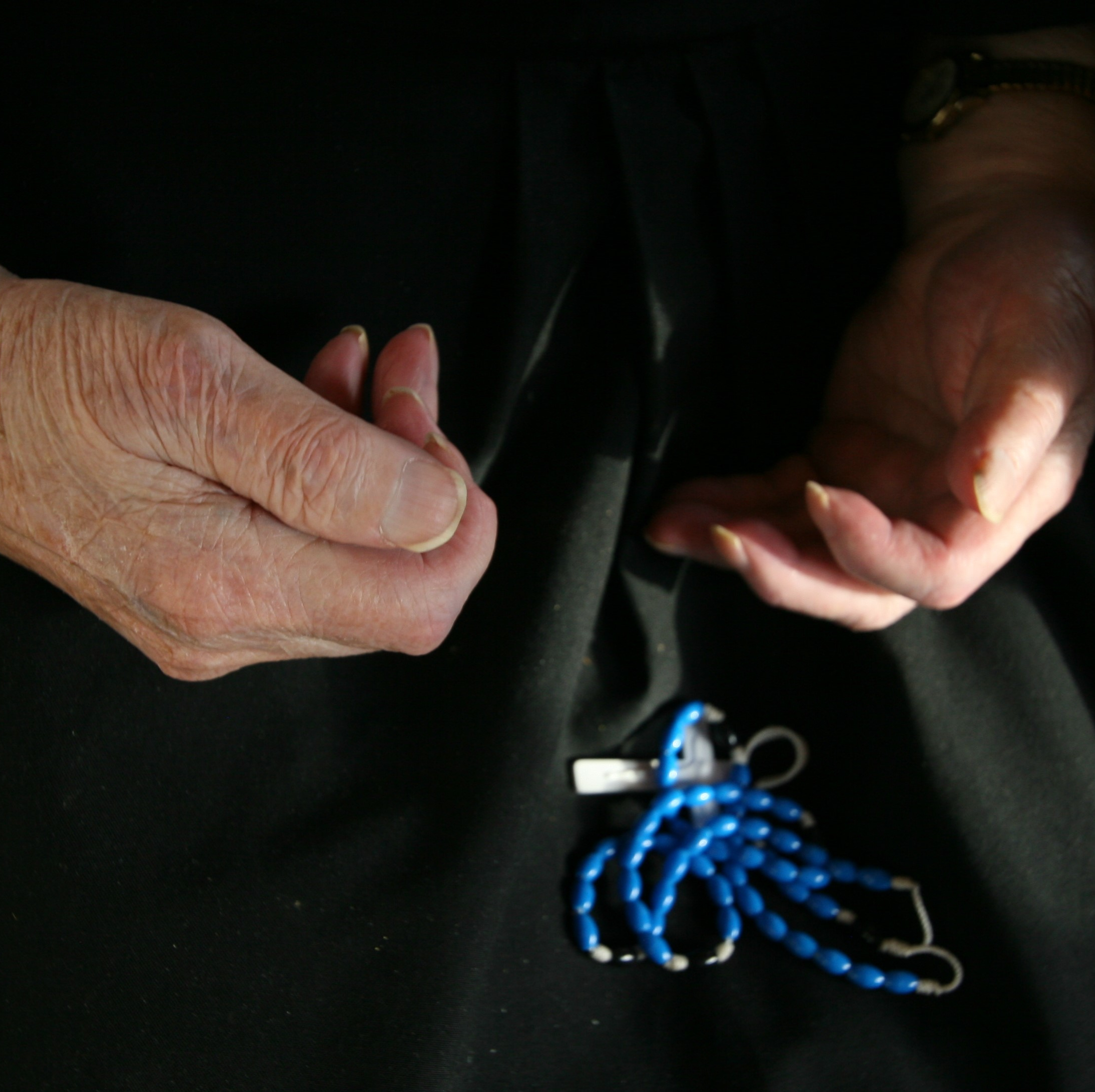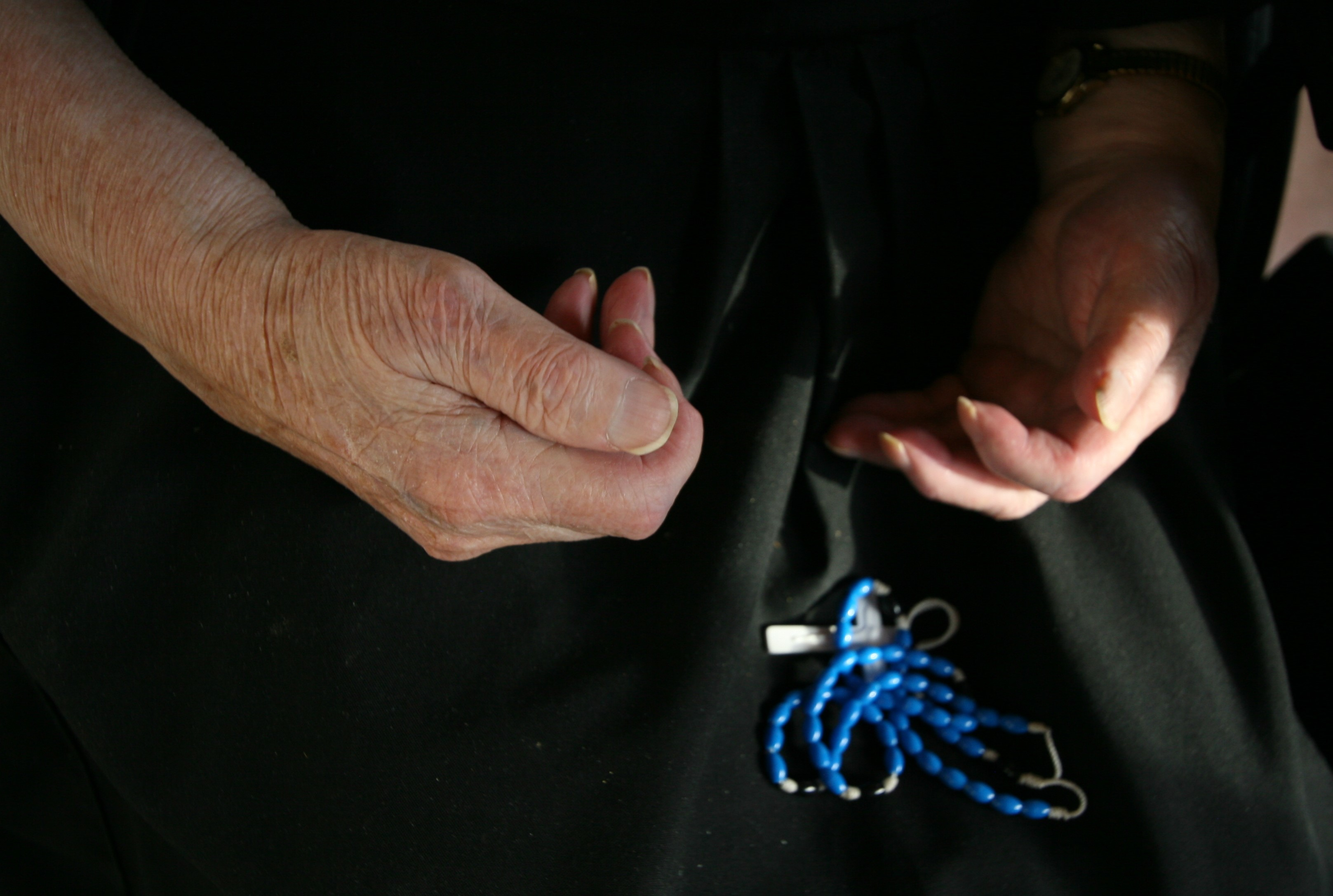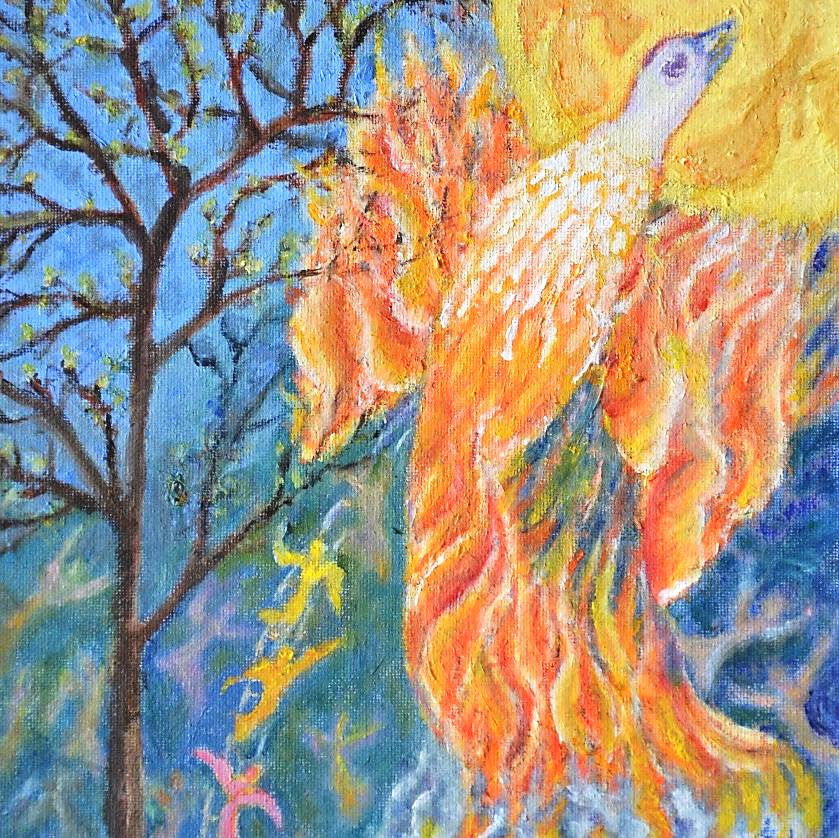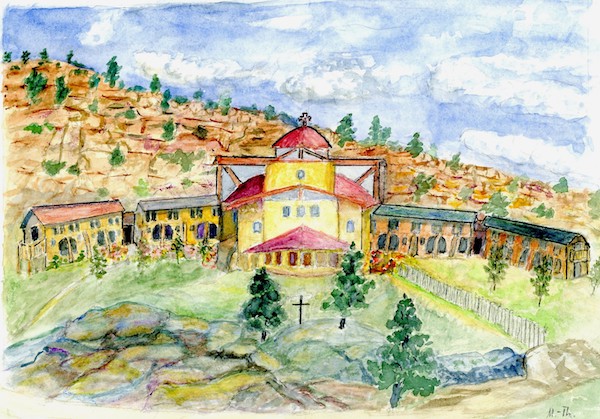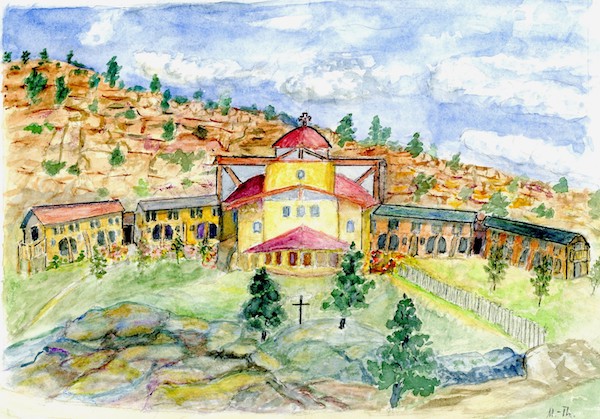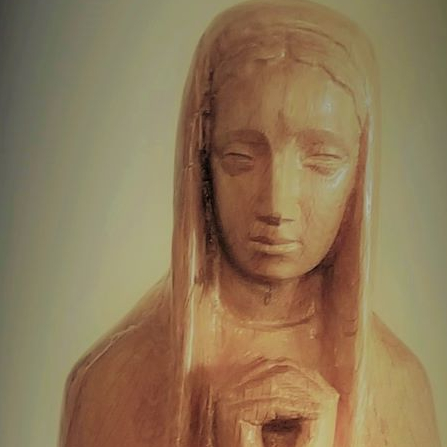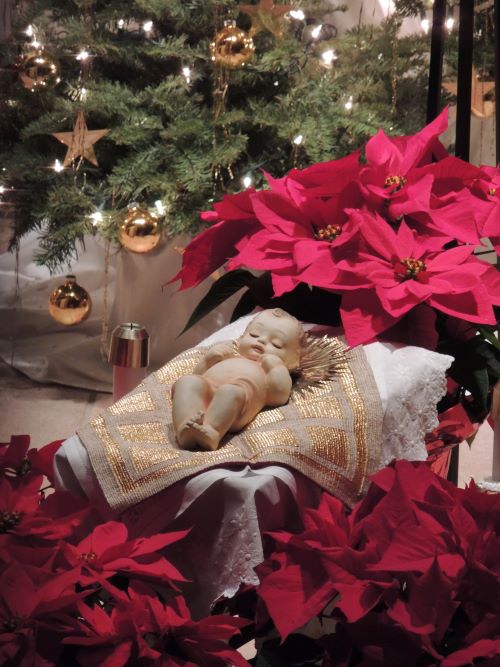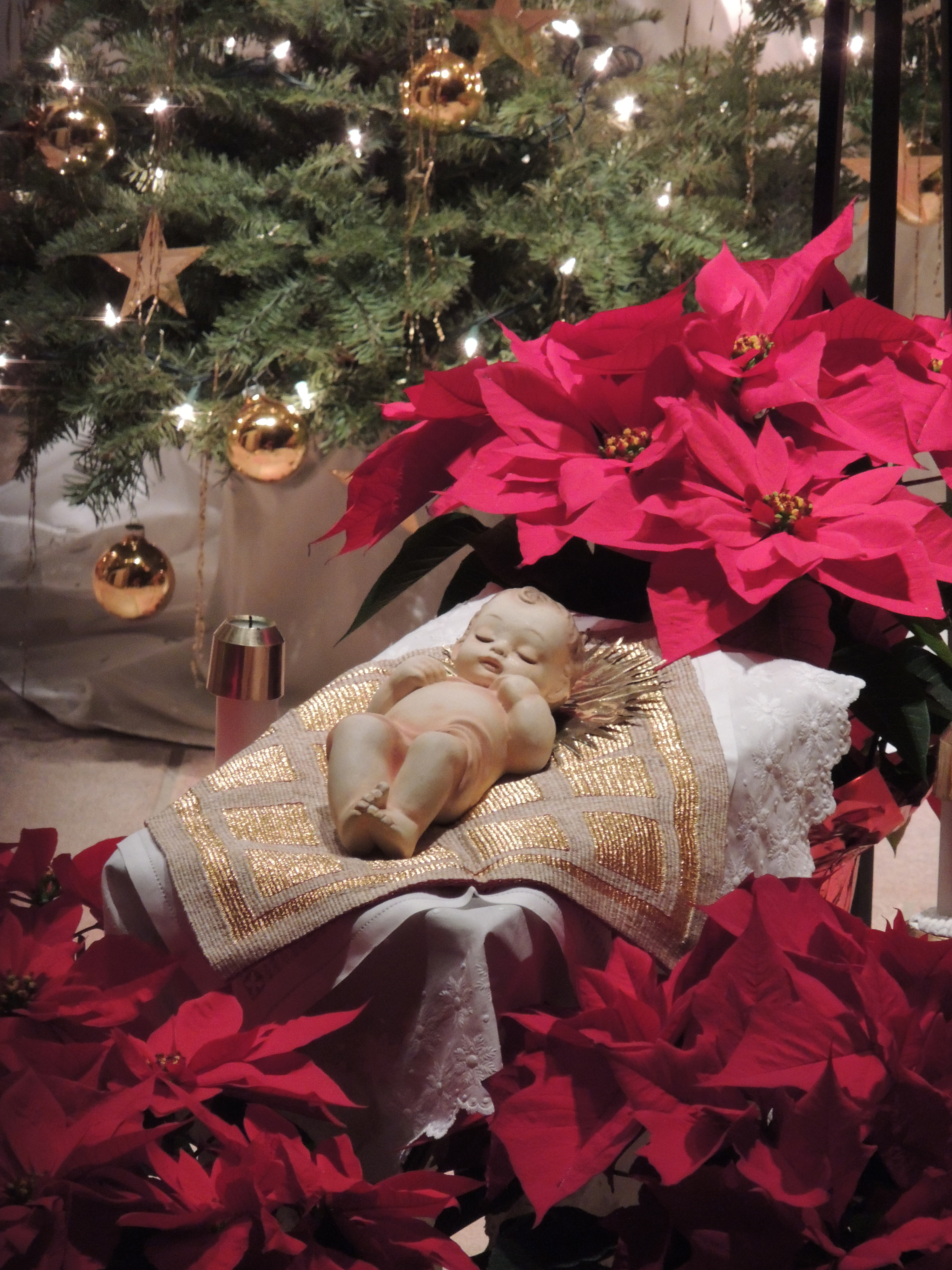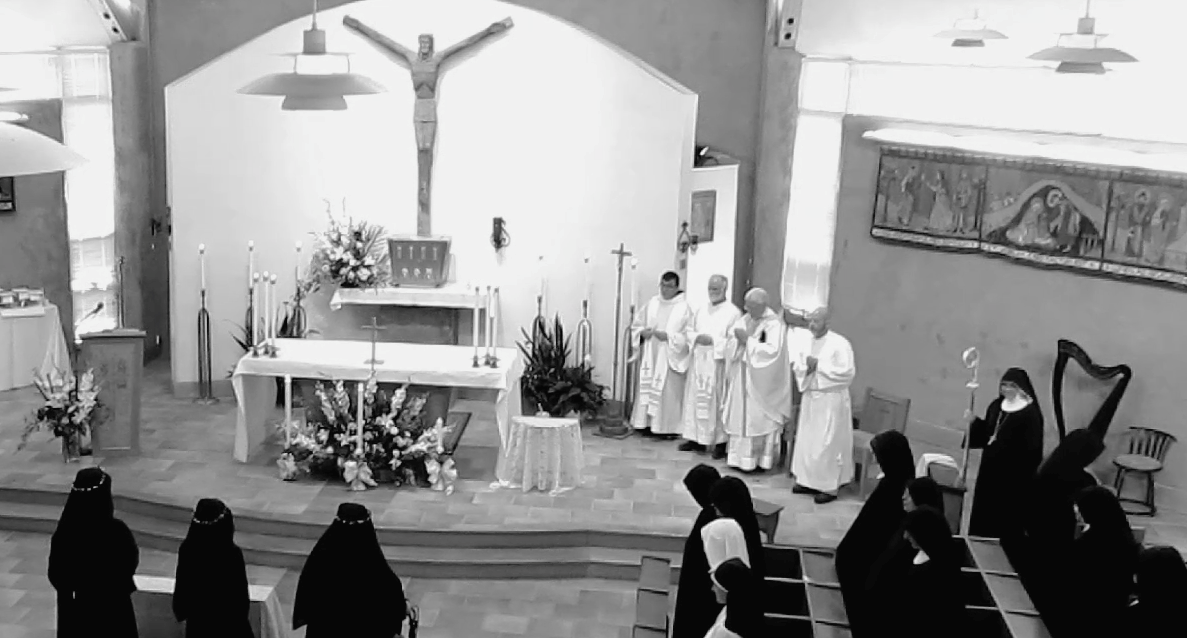A reflection by Mother Maria-Michael Newe, OSB
I think one of the keys to a meaningful life is to remember things that are eternal. St. Benedict talks about this in his Rule. In the Prologue he exhorts us to “keep your eyes on eternity,” and in Chapter 72 he writes, “let them prefer nothing whatever to Christ, and may he bring us all together to everlasting life.” St. Benedict loves that everlasting life. He wants us to keep it in our minds, a constant reminder of our ultimate goal. And remember that eternity with God is the place where we are fully ourselves, completely healed from our wounds, and able to love God and each other freely and perfectly. That is the kingdom we want to come to earth as it is in heaven!
What is your goal? If you’re trying to drive in a straight line you have to keep your focus on a single point in the distance. If you don’t, you’ll end up like me the time I was driving a tractor and I looked up to see a huge bird that flew overhead. You should have seen the swerve in the field. I had to continually go back to try and straighten it up and compensate here and there to try to make it look nice. But there’s more to it than that when it comes to our souls. If we aren’t focused, the swerve can be detrimental. It’s not something you can fix without God’s help or without setting your sight purposefully.
We do our part by living our lives well. Through our prayer and the purity of our life, God can take those things and use them where He wills. It is a mystery—we do not need to understand how He does it—the purpose is to believe. I don’t need to know exactly how, nor does He need my permission. It is only my “yes” that is necessary. Mary didn’t understand everything about the Incarnation or Crucifixion of her Son. She did not ask, “Can I see a book on how to do all of this? Can I see an instruction manual before getting back to You?” There was none of that. There was just pure faith.
Of course there will be times that we mess up, take our eyes off our goal, and refuse the calls to conversion and healing that are meant to lead us to becoming truly ourselves. This is what it means to be human! God does not expect anything different from us. I love the saying that “saints are sinners that kept on trying.” The important part is whether or not we persevere in returning to God whenever our conscience informs us of our wrongdoing. Look at King David. He sinned royally—committing adultery, murder, and who knows what else—but when we read in 1 Kings 11 how David was remembered, we don’t hear about his failures, but only that his heart was “entirely with the Lord,” and that he followed God “unreservedly.” David committed a terrible crime, but he never despaired of God’s love for him and His forgiveness toward those who turn to Him as truly remorseful children. Let us also never despair of God’s mercy.
